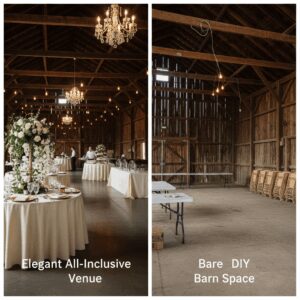
Homeownership has long been sold as the ultimate milestone of adulthood and wealth-building. But with record-high home prices, steep mortgage rates, and intense bidding wars, many people are rethinking the idea of tying up their cash in a single property. Enter: REITs—specifically, REITs focused on rental housing.
For lifelong renters, city dwellers, or anyone who wants a piece of the real estate pie without the headaches of maintenance, tenant calls, or giant down payments, residential REITs (Real Estate Investment Trusts) are an increasingly popular alternative.
Here’s how you can tap into real estate investing without ever buying a house—or even leaving your apartment.
What Are Residential REITs?
A REIT is a company that owns, operates, or finances income-producing real estate. Think of it like a mutual fund, but instead of stocks and bonds, you’re buying into properties—apartments, office buildings, shopping centers, hotels, and more.
Residential REITs focus specifically on housing: apartment complexes, multifamily buildings, single-family rental portfolios, and even student housing. By purchasing shares in a residential REIT, you’re essentially becoming a partial owner of a large pool of rental properties.
Why Renters Should Care
Many renters feel excluded from real estate wealth-building because they don’t own property. Meanwhile, landlords are collecting rent checks and seeing their property values appreciate over time.
Investing in residential REITs gives you a chance to benefit from rising rents and property values without actually having to buy a home. In fact, some REITs have performed better than traditional real estate investments because they allow for diversification and professional management.
The Benefits of Residential REITs
1. Low Barrier to Entry
Unlike buying a house—where you might need tens of thousands for a down payment—REIT shares can often be purchased for less than $100 through a brokerage account. No need to worry about closing costs, inspections, or negotiating with sellers.
2. Passive Income
Most REITs pay dividends, often quarterly, from rental income. If you’re a renter, it’s a poetic twist: you might be paying rent each month, but at the same time, you’re earning rental income as an investor.
3. Liquidity
Real estate is usually an illiquid asset—you can’t just sell a bathroom or a bedroom if you need cash. But REIT shares trade on public stock exchanges, so you can buy or sell whenever the market is open.
4. Diversification
Buying a single rental property means all your eggs are in one basket (and one neighborhood). REITs spread your risk across many units and often across multiple cities or regions.
What to Watch Out For
While REITs can be an attractive way to invest in real estate, they aren’t risk-free.
- Market Volatility: REIT shares can fluctuate like any other stock. While they generally follow real estate trends, they’re also impacted by overall market sentiment.
- Dividend Taxes: Dividends from REITs are taxed as ordinary income, which might be higher than long-term capital gains rates.
- Interest Rates: Rising interest rates can affect property values and borrowing costs for REITs, which might impact their returns.
Popular Residential REITs to Explore
A few residential REITs have built strong track records:
- Equity Residential (EQR): Focuses on urban apartment buildings in high-demand cities like Boston, New York, and San Francisco.
- Mid-America Apartment Communities (MAA): Targets Sun Belt markets with strong population growth.
- Invitation Homes (INVH): Specializes in single-family rental homes across the U.S.
Always do your own research or consult with a financial advisor before investing.
Build Wealth Without the Lawn Mower
The idea of owning a home isn’t for everyone—nor is it always the smartest financial move given today’s high costs and uncertain markets. Residential REITs let you share in the profits of real estate while keeping your lifestyle flexible.
So if you’re a renter dreaming of real estate returns without clogged toilets or surprise roof leaks, REITs might be the perfect side door into the market. You can stay mobile, skip the maintenance stress, and still collect your share of rent checks—all from your phone or laptop.
Unlock Full Article
Watch a quick video to get instant access.











